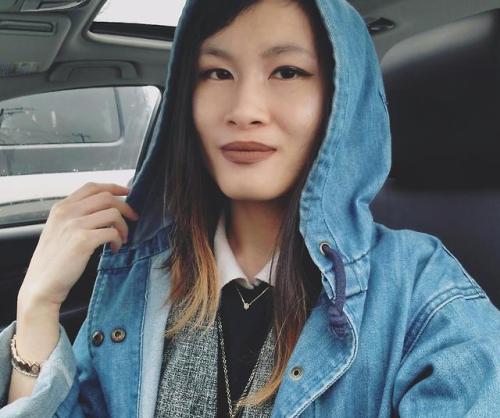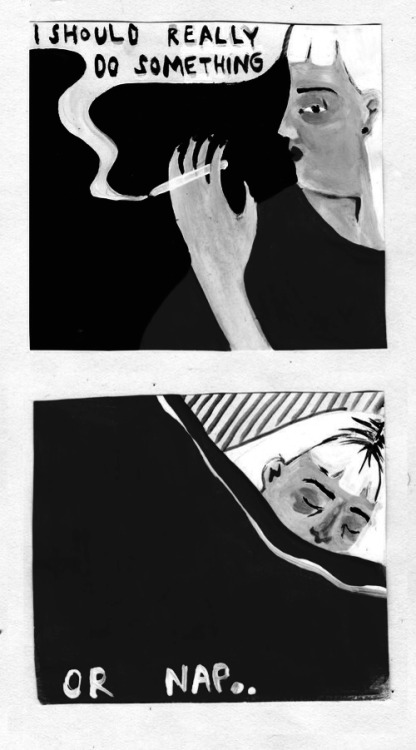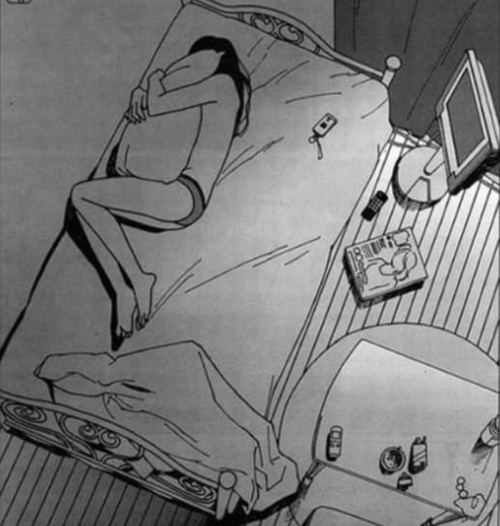#sleep disorder
the language we use to describe ourselves, to build communities, and to frame the world within and around us matters. with this in mind, i’ve been asking myself tough questions that i’d like to extend to others who feel marginalized in ableist systems:
what term(s) do you identify with to describe yourself in relation to ableist structures?
what meanings or functions does this language have for you? are there challenges or limitations that come with using this language?
despite the stigma and misconceptions that the word disability carries thru ableist lenses, many folks (including myself) identify with it as a tool for repurposed meaning and community. i’ve seen folks identify and communicate with differently abled, neuroatypical, neurodivergent, etc. as alternate/related terms that challenge some of the negative connotations of disability, though they also have potential to be framed in ways that makes us other. nonetheless, i think each of these words empowers, (re)frames, resists, and connects us in unique ways, often dependent on our goals and experiences.
i’m not searching for infallable language or a catch-all descriptor for diverse experiences. however, i am hoping to understand how others are navigating and negotiating language within their own contexts. i amtrying to be mindful and critical of language that shapes how i see myself, how i relate to others, how i resist and interrogate ableism. i am searching for language that can bridge me with folks who may not identify with markers as politicized as disability, persay, but may resonate with not fitting into ableist norms.
would appreciate reblogs or DMs to circulate conversation and share perspectives/stories. <3
it’s wild that i can recognize how fucked up capitalistic value of human labor/utility/productivity is, but at the same time feel i dont merit comfortable existence if my body is not able to work for it to a job’s standards… the fuck. :(
for me, I’ve never been fond of separating (dis)abilities from identity. lately though, I can’t help but see the realme as the me who has energy. the me who has a will, who is eager, who is inspired, who is creative, who is present, who is tuned in, who is productive, who is restless. when i’m in those states, i’m so endeared by my own energy to live. more often i am the me who is unplugged with fatigue. and everything i desire or value in myself is clouded, heavy, far away. i feel stagnant, uninspired, unwilling, so removed from myself. it hurts.
Hi there - I’m Kaydra! I’m trying to create a communal space for dialogue, support, resources, research, coping, and personal reflections regarding mental health and (dis)abilities, esp in academic contexts. I’ll often post on Idiopathic Hypersomnia, ADD, chronic depression, and my rage against the ableist institution that is academia (along with strategies for being a student and teaching students).
Post link
if i cry once more tonight may aswell class me as a fucking water fountain.
This is me
This is me making a post about mental illness. I suffer from anxiety, depression, and insomnia. The love of my life is currently sleeping next to me, she’s been asleep since maybe 8:30, yet here I am laying in bed wide awake listening to the world go by. Am I sleepy? Sure. Will I be able to sleep soon? Maybe, maybe not…is this a normal battle for me every night? Yes, yes it is..I may seem like I have shit together, but guess what?! I don’t. This is just a post to let all of you little lovely’s know that if you need someone to talk to, or someone to listen, I’m here for you, this shit isn’t easy for anyone. I’m here and I’ll listen.

a lot of people think narcolepsy is just ‘being sleepy’ or even ‘being lazy’ but it’s so much more than that. symptoms of narcolepsy include:
- extremely intense, vivid dreams/nightmares. narcolepsy is defined as a disorder in which most of, if not all of your sleep is REM sleep. this is what causes daytime sleepiness; your body is NOT RESTING CORRECTLY and is physically incapable of doing so. we have little, if any deep sleep.
- sleep paralysis and hallucinations.
- cataplexy, found in type 1 narcoleptics. cataplexy is very similar to a seizure, though it is not classified as one. episodes of cataplexy are usually (but not always) brought on by strong emotions, and cause you to lose control of different parts of your body, ranging from muscle limpness to full on collapse.
- EDS, or excessive daytime sleepiness. often times, narcoleptics will suffer from something called a sleep attack, where they fall asleep uncontrollably. this can happen while working, driving, or doing hobbies.
- increased risk of all cancers and other (yes, narcolepsy is suspected to be an autoimmune disease!) autoimmune diseases, as well as an increased rate of mental health issues. ADHD, diabetes, heart disease, and depression are often co-morbid with narcolepsy. tying in with this, we have an increased rate of suicide.
- insomnia due to the nature of extremely fragmented and disrupted sleep. intense and vivid nightmares can often make WANTING to go to sleep difficult as well. pretty much any other sleep disorder can be co-morbid with narcolepsy.
- decreased cognitive function. memory issues are common in people with narcolepsy; even a mild case of narcolepsy can be compared to going 48-72 hours without sleep in a normal person…except its every day.
- extremely poor quality of life. [1] [2]
- not a symptom, but it often takes narcoleptics several years to be diagnosed w this disability; it is EXTREMELY under-diagnosed, and testing and treatment are very expensive even with insurance.
there is no cure for narcolepsy, only treatments. the only treatments we currently have are various stimulants (adderall, modafinil, ritalin, etc) or just straight up GHB. many people cannot tolerate these medicines, making treatment even more difficult.
(keep in mind that i am writing this post from an american perspective; i know treatment is often more accessible in some ways in other countries, though i also know it can be worse/harder in different ways too.)
I came across this post about a week ago, had an “Oh shit” moment, went to read the Wikipedia article, and had another “Oh shit” moment. I just spoke to my doctor and he says yeah, I might have narcolepsy, and he’s referred me for a sleep study. So. Yeah. I’m 49 and I’ve had these symptoms at least since I was 14, but since I don’t have cataplexy I didn’t take it seriously.
The feeling you get when you realise you’ve actually lost weight!
Do you ever get up out of bed at 3am to check your scales?
Yeah… me neither bro















